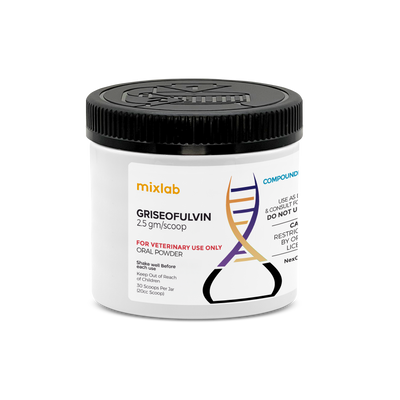
Theanine (L) 1 gm/scoop, Oral Powder, 30 Scoops (15cc Scoop)
Login for pricing
- Brand
- Mixlab
- SKU:
- NC-0262
- Product Type:
- Powder
- Size:
- 16oz
- Administration:
- Oral
- Scoops Per Container:
- 30
- Scoop Size:
- 15cc
Anxiety is one of the most commonly-referenced behavioral issues among horse owners, riders and trainers. It has often been noted that horses are herbivores; this relegates them to the status of prey animals in the wild. While horses may not have had to deal with predators for a long time over the course of human history, in terms of horse evolution, this is a very short period of time. Thus, horses have retained their nervous temperament. Their instinct to flee in the face of danger can make working with horses difficult at times.1
In some cases, a specific horse may just seem more anxious than most, crying when left alone, startling frequently, fussing or becoming practically unmanageable when put in the trailer. While horses and humans frequently forge strong bonds of trust, it is important for handlers to remain alert, since it is in the horse’s nature is to protect itself whether a threat is real or imagined.
Causes of Anxiety in Horses
Often, there are specific situations that can set off a horse. In some cases, one may not be familiar (or familiar enough) with a horse’s history and why they may react to certain situations with fear. A partial list of common horse triggers includes:
-
Strange objects (Farm equipment, plastic bags, flapping tarps)
-
Dark or enclosed areas (Trailers, indoor arenas)
-
Separation (Being left alone suddenly)
-
Loud or sudden sounds (Banging, rustling, firearms)
-
Grooming (Clippers, farrier work)
-
New or strange venues, sounds or smells
-
New or strange people (Riders, new trainers, not understanding what a trainer is asking of them)
-
Other animals (Deer, cattle, barking dogs)1
Recently, one study suggested that work stress may lead to a variety of negative effects in horses. Like humans, many horses work on a daily basis and are regularly submitted to stressors related to their work. The study postulated that the physical constraints and/or psychological issues (orders from riders and trainers) may lead to heightened anxiety in an already anxious species.2
In some cases, it may be a process of elimination in determining what stimuli or conditions may be causing a horse’s skittishness. Some veterinarians have suggested that a horse with compromised vision or loss thereof may become anxious. Typically, there are two types of eye issues that can lead to vision changes in horses: cloudiness that obstructs vision in the eye, or functional issues with the eye itself. Both of these can impede a horse’s vision and cause behavioral changes, such as a horse becoming anxious.3 If vision problems are suspected, scheduling an eye exam through the veterinarian is the best course of action.
As with humans, horses who are dealing with pain can exhibit behavioral issues. If an owner or trainer suspects that an anxious horse is in pain, a thorough physical exam is indicated, including dental and lameness checks. Chronic pain issues can also include such things as gastric ulcer syndrome; this is a highly painful condition that can exacerbate anxious behavior.
Poorly-fitting tack, diet, poor training, lack of proper exercise and poor socialization are also issues that can lead to or exacerbate anxiety issues in horses.
Many trainers assert that desensitizing a horse to its triggers is often the first step in reducing anxiety, assuming one knows that those triggers are. Introducing them slowly to whatever stimulus is upsetting them with repetition, consistency and positive reinforcement can help teach a horse that they don’t need to be afraid.3 Finally, many veterinarians and trainers recommend natural calming supplements for severe cases of anxiety in horses.
L-Theanine Powder for Horses
L-theanine is an amino acid derivative not commonly found in horse diets. It increases the level of serotonin and dopamine to promote calm and relaxation, without sedation and is highly effective against anxiety.
Chemically, L-theanine blocks the binding of L-glutamic acid to the glutamate receptors within the brain, creating a relaxed state.4 Researchers in Japan performed several studies with humans and with mice and found benefits with L-theanine supplementation in the reduction of stress responses.3
Where to buy L-Theanine Powder
L-Theanine Powder is available in the U.S. through pharmaceutical manufacturers and through veterinary custom compounding companies.
Please consult your veterinarian prior to beginning any treatment regimen.
FOR RX ONLY: A valid prescription from a licensed veterinarian is required for dispensing this medication.
2Hausberger M., et. al. (2009) Could Work Be a Source of Behavioural Disorders? A Study in Horses. PLoS ONE 4(10): e7625.















